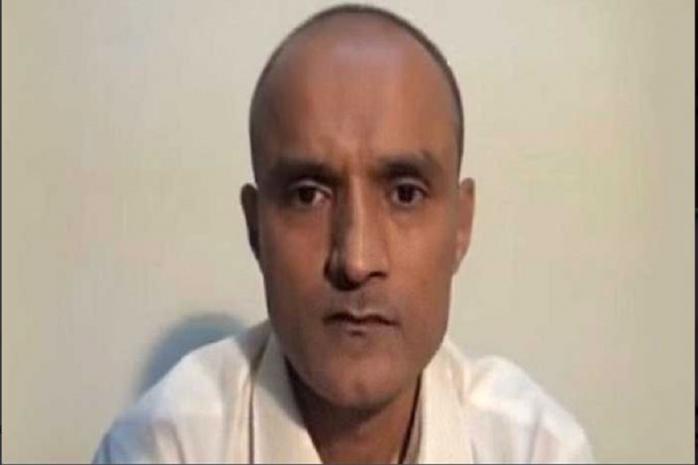Kulbhushan Jadhav who was allegedly arrested from the Pakistan-Iran border in Balochistan on March 3, 2016 has been accused of being a spy of India’s external intelligence agency, Research and Analysis Wing (R&AW). Pakistan had alleged that Jadhav was engaged in masterminding terrorist activities in Balochistan. Jadhav was tried by a military court and after a trial that lasted just three-and-a-half months, he was awarded the death sentence on April 10, 2017.
Though the government of Pakistan had authorised its military courts to try terrorism related cases, this move had come under very severe criticism from the international legal community as in addition to serious procedural shortcomings, its trial procedure lacked transparency. Under these adverse circumstances, it would have been more the sensible for the government of Pakistan to have tried Jadhav in a civil court as this would have enhanced the legal credibility of the trial at international level. This issue has since snowballed into a flash point for India-Pakistan relations.
India moved the ICJ (International Court of Justice) in May 2017 protesting against the “farcical trial” of their 48-year-old retired Indian Navy Officer by Pak’s military court. India’s first win came when the ICJ admitted that prima facie there were legal lacunae in the trial of Jadhav by Pak’s military court. Another monumental mistake that Islamabad made was its inordinate delay in informing New Delhi that it has taken Jadhav (who is an Indian national) into custody. Secondly, by refusing to entertain New Delhi’s request for grant of consular access to Jadhav, Islamabad violated the Vienna Convention and thus weakened its own case. Thirdly, Jadhav has been awarded death sentence solely on the basis of his confessional statement, which is legally debatable since it could have well have been extracted under duress.
Pakistan Army may have succeeded in temporarily diverting public attention from its own failure to tackle home-grown terrorism by blaming R&AW for masterminding unrest in Balochistan and making Jadhav the face of what it calls ‘proxy war’ being waged by India. However, ICJ’s verdict putting a stay on Jadhav’s execution and asking Islamabad to grant consular access to him vindicates India’s stand that Jadhav is just being a scapegoat to assuage the traumatisation of the people of Pakistan.
Yet the ICJ verdict shouldn’t be viewed in terms of victory or defeat as this will only aggravate an already explosive situation and vitiate the already tense environment. Statesmanship demands that both sides be more practical rather than emotional in their approach and instead of using Jadhav issue as a means to ignite hyper-nationalist feelings, use it to mend fences. On this account, Pakistan is lucky because by it is in a position of showing magnanimity by releasing Jadhav, and should it do so, New Delhi will be in no position to show belligerence.
With Jadhav in its custody, Islamabad definitely has an upper hand today. Yet, it has to seriously think about what do with him. There’s an old saying that “bandh muthi lakh ki, khul gayi toh khaak ki” (while a closed fist is invaluable since no one knows what it holds within, it becomes worthless the moment it’s opened). Jadhav’s execution would certainly be met with great celebration in Pakistan, but besides being momentary, it will lay down the dangerous precedent for a ‘tit for tat’ policy which will see both countries ‘legally” lynching many innocent ‘Jadhavs’ just in order to pacify the collective domestic conscience.
If we really want to get out of the unending cycle of death and destruction, then both sides need to stop getting over-obsessed by hyper nationalist propaganda and instead work for reconciliation through reciprocal demonstration of magnanimity.
Pakistan should not forget that if it’s an “Indian spy” and alleged terror mastermind called ‘Jadhav’ that the ISI has caught today and sentence to death by its military court without even giving him consular access, then isn’t it possible that tomorrow the R&AW could possibly apprehend a Pakistani national named ‘Javed’, air a confessional video of him admitting being an ISI operative tasked to create unrest in Kashmir and other communally sensitive areas within India and sentence him to death?
In making Jadhav a sacrificial lamb, Pakistan is treading upon a very dangerous path and one only hopes that good sense prevails because pacifying the public by executing Jadhav isn’t a permanent solution. To cater to the public, the ISI will have to keep finding more ‘Jadhavs’ and at some stage R&AW will surely retaliate. India and Pakistan are already fighting it out on the LoC (Line of Control) and introducing this new practice of apprehending an Indian citizen, keeping him in custody incognito, denying him consular access and then sentencing him to death will always evoke a similar action from the other side. It would be good for Pakistan to reconsider its dependency on short term populist actions for the upkeep of its image, because R&AW can also do the same.
Long pending Kashmir dispute is the root cause of all problems between the two countries and has become an eye soar for neighbouring countries which took many lives in the border skirmish and also in the main land. This flash point always gave dent to relations between India and Pakistan.
The reluctance of the two countries to settle Kashmir dispute is taking its toll on the commoner in India and Pakistan. The people in India and Pakistan deserve a better deal. India and Pakistan must shun path of confrontation and join hands to usher in a new era of trust, peace and friendship in the sub-continent.

